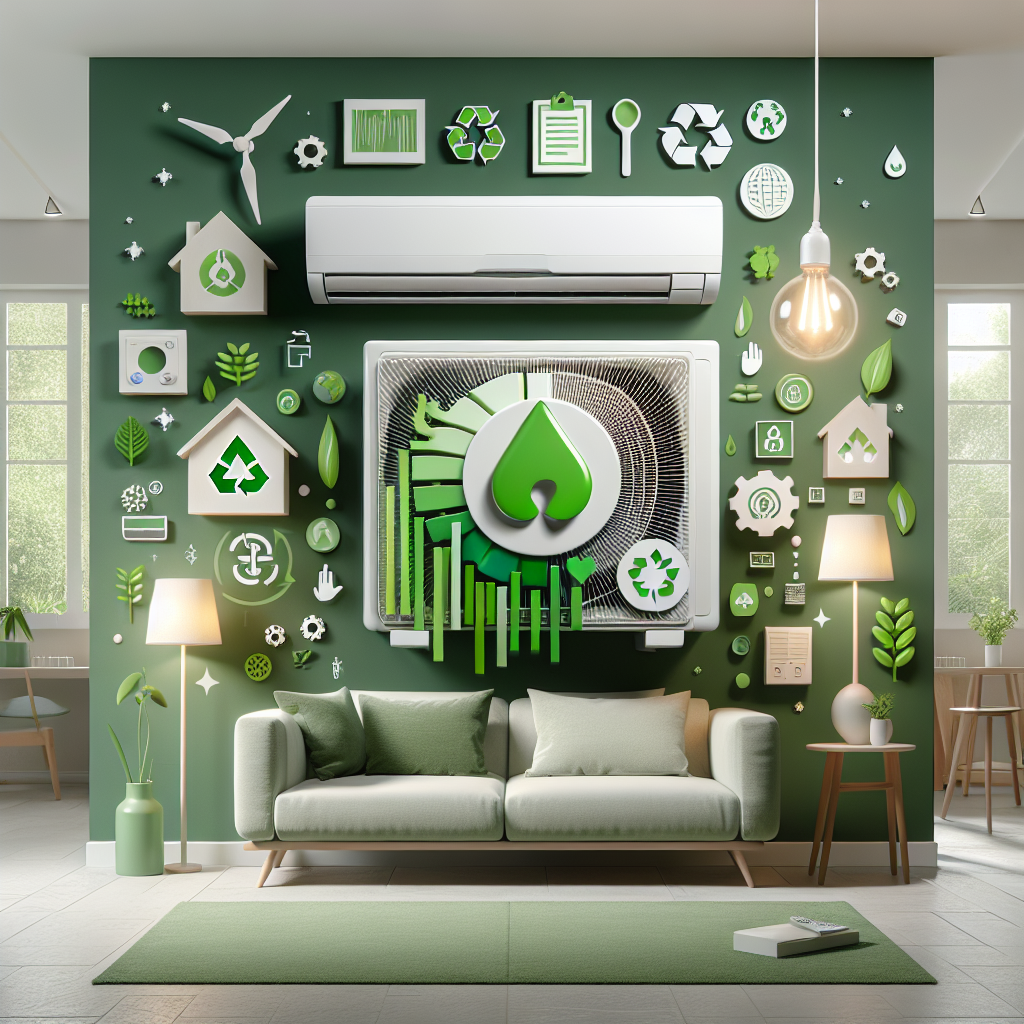As summer heats up, staying cool becomes a priority for most homeowners. But with rising energy costs and an increasing awareness of environmental issues, choosing the right air conditioning system has never been more critical. In this guide, we’ll explore energy efficiency in air conditioning systems and provide practical tips for choosing an eco-friendly option that suits your needs.
Understanding Energy Efficiency in Air Conditioning
Energy efficiency refers to how effectively an air conditioning unit uses electricity to cool a space. The more efficient the system, the less energy it consumes to achieve the desired temperature. This not only reduces your energy bills but also minimizes your carbon footprint, making it a win-win for both your wallet and the planet.
Why Energy Efficiency Matters
According to the U.S. Department of Energy, air conditioning can account for 12% of total energy usage in American homes. Opting for an energy-efficient system can lead to significant savings over time, both financially and environmentally. Here’s why you should consider energy efficiency when purchasing an air conditioning unit:
-
Lower Utility Bills: Energy-efficient systems use less electricity, which can lead to substantial savings on your monthly energy bills.
-
Reduced Environmental Impact: By choosing a system that consumes less energy, you help decrease greenhouse gas emissions.
-
Increased Comfort: Newer models with better energy efficiency ratings often have superior technology that improves humidity control and indoor air quality.
- Long-term Investment: While the initial cost may be higher, energy-efficient systems tend to have longer lifespans and lower maintenance costs.
Key Features to Look for in Eco-Friendly Air Conditioning Systems
When selecting an air conditioning system, keep these features in mind to ensure you’re making an environmentally conscious choice.
1. Energy Efficiency Ratio (EER) and Seasonal Energy Efficiency Ratio (SEER)
The EER measures the efficiency of an air conditioning system at a specific temperature, while the SEER indicates efficiency over an entire cooling season. Look for units with higher ratings, as they consume less energy to deliver the same cooling output. Units with a SEER rating of 14 or higher are generally considered energy-efficient.
2. Energy Star Certification
Devices that have an Energy Star certification meet strict energy efficiency guidelines set by the Environmental Protection Agency (EPA). Choosing an Energy Star-rated AC unit ensures you’re selecting a product that has undergone rigorous testing for performance and efficiency.
3. Inverter Technology
Air conditioning units equipped with inverter technology can adjust their compressor speed based on the current cooling demand. This not only improves energy efficiency but also provides consistent temperature control, preventing drastic temperature fluctuations.
4. Type of Refrigerant
Air conditioning systems use refrigerants to absorb and release heat. Older units typically use R-22, a substance that is harmful to the ozone layer. Newer systems often use R-410A, a more environmentally friendly option that has a lower impact on global warming.
Installation and Maintenance: Key Considerations
An energy-efficient air conditioning system can only perform as intended with proper installation and maintenance.
Professional Installation
Hiring a professional for the installation ensures your system operates at peak efficiency. Proper sizing is critical; an oversized unit can lead to higher energy usage and inadequate humidity control.
Routine Maintenance
Regular maintenance, such as cleaning filters and checking coolant levels, can enhance your system’s efficiency and longevity. Schedule annual tune-ups with a qualified HVAC technician to ensure your air conditioning unit is functioning optimally.
Making an Informed Decision
Choosing an eco-friendly air conditioning system is not just about the initial purchase; it’s about making a long-term commitment to energy efficiency and environmental responsibility. By considering SEER ratings, Energy Star certifications, and modern technologies like inverter systems, you can find a unit that meets your cooling needs without compromising sustainability.
Additional Tips for Energy Savings
- Utilize Smart Thermostats: Smart thermostats can help you manage your cooling schedule more effectively, adjusting temperatures based on your habits.
- Consider Alternative Cooling Options: Explore alternative solutions like ceiling fans, evaporative coolers, or ductless mini-split systems that may be more energy-efficient than traditional central units.
- Seal and Insulate Your Home: Improve your home’s insulation and seal gaps around windows and doors to reduce the overall cooling load.
Conclusion
Investing in an energy-efficient air conditioning system is a smart choice for your home and the environment. By understanding the various options available and focusing on energy-rated features, you can select a unit that not only keeps you cool but also supports a more sustainable lifestyle. Remember, every bit you conserve leads to a brighter future for our planet. Stay cool, save money, and make a positive impact!


